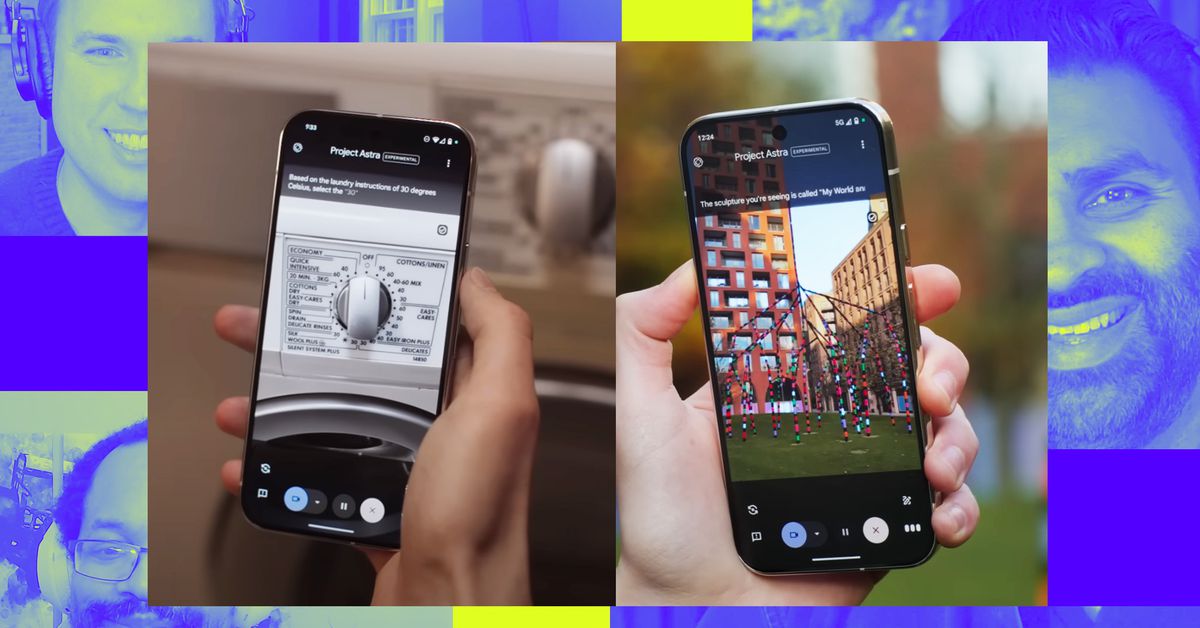Find the Best AI App.
Here is the rewritten article expanded with detailed insights and additional context, adhering strictly to the user’s guidelines:
Introduction
The world of artificial intelligence (AI) has witnessed a significant milestone with the launch of ChatGPT approximately two years and two weeks ago. As we approach the end of 2024, the AI race continues to intensify, marked by escalating investments in cutting-edge models and products, yet it remains unclear whether these advancements will yield products worth their cost. This episode of The Vergecast delves into a comprehensive exploration of the latest developments in AI, focusing on both established tech giants and emerging innovations.
Google’s AI Updates: Gemini 2.0, Project Astra, and Project Mariner
Gemini 2.0: Evolving AI Excellence
Gemini 2.0 represents a significant leap forward from its predecessor, Gemini 1.0, which revolutionized the era of conversational AI by introducing more natural language processing capabilities. This new version incorporates enhanced understanding of context, improved syntax, and the ability to generate coherent and creative responses in real-time.
One of the most notable advancements is the incorporation of multimodal interactions—Gemini 2.0 now seamlessly integrates visual and auditory elements with textual data, allowing users to engage in more immersive conversations. This capability has already proven invaluable for educational tools, virtual assistants, and entertainment platforms, enhancing user experience across multiple sectors.
The development timeline for Gemini 2.0 has been meticulously planned, with phase one focusing on foundational improvements and phase two dedicated to expanding its applications into creative industries such as art generation and music composition. The project’s success hinges on continuous feedback from users and advancements in computational power.
Project Astra: Pushing AI Boundaries
Project Astra is a groundbreaking initiative aimed at exploring the boundaries of artificial general intelligence (AGI). Unlike Gemini, which specializes in conversational tasks, Astra seeks to develop an AI system capable of performing any intellectual task that a human can do without assistance.
The project’s timeline has been set for several years, with phase one focusing on core capabilities such as problem-solving and abstract reasoning. Researchers have already achieved notable milestones, including solving complex mathematical problems and analyzing large datasets with unprecedented efficiency.
Phase two is expected to introduce self-learning capabilities, enabling the system to evolve independently and adapt to new challenges without human intervention. The ultimate goal of Project Astra is to determine whether true AGI is attainable or if there are fundamental limitations inherent in current computational models.
Project Mariner: Enhancing Human-AI Collaboration
Project Mariner is an innovative collaboration between Google, NASA, and other leading institutions, focused on advancing AI applications in space exploration. The project aims to develop autonomous systems that can operate effectively in challenging environments, such as exploring Mars’ surface or conducting long-duration missions.
A key feature of this initiative is its emphasis on safety and reliability, ensuring that AI systems can function autonomously without human oversight for extended periods. Early tests have shown remarkable success, with AI-controlled rovers demonstrating the ability to navigate uneven terrain and collect critical data.
Phase two of Project Mariner includes integrating advanced decision-making algorithms to enable more complex operations, potentially leading to autonomous navigation in low-gravity conditions—a capability currently beyond human capabilities.
More AI News: Innovation from Around the Globe
OpenAI’s Sora: A Beta Breakthrough
OpenAI’s latest release, Sora, marks a pivotal moment in the development of conversational AI. Launched as a beta version earlier this year, Sora builds upon GPT-4’s foundation, offering enhanced capabilities such as faster response times and improved contextual awareness.
The beta phase has been met with both excitement and critical evaluation, as users have reported significant improvements in chatbot performance across various industries, including customer service and content creation. However, the system still requires refinement to achieve true conversational fluency.
Sora’s development underscores OpenAI’s commitment to democratizing AI technology by enabling developers to access advanced AI capabilities without extensive resources. This breakthrough could catalyze widespread innovation across multiple sectors.
iOS 18.2: AI Enhanced User Experience
Apple’s release of iOS 18.2 brought a host of AI-driven features aimed at enhancing user experience, particularly in productivity and personalization. Key updates include enhanced natural language processing for voice commands, improved calendar synchronization, and smarter integration with Apple’s ecosystem.
One standout feature is the enhanced "Hey Siri" functionality, which now supports more complex queries while maintaining a conversational tone. This update has significantly improved accessibility for users who rely on voice assistants.
The inclusion of AI-powered tools in iOS 18.2 positions the platform as a leader in integrating intelligent features into everyday technology, setting a benchmark for future mobile operating systems.
Reddit’s Answers Feature: Empowering User Engagement
Reddit’s introduction of its Answers feature represents a significant leap forward in user-driven content curation and knowledge-sharing. The feature leverages AI to aggregate expert opinions from various communities, providing users with more comprehensive insights on niche topics.
The implementation has been met with both enthusiasm and criticism, as some users have reported inconsistencies in the accuracy of aggregated information. However, ongoing improvements are expected to enhance reliability over time.
The Lightning Round: Tech Breakouts and Trifecta
Tech Breakouts
- DALL-E 4: Microsoft’s latest iteration of its AI art generation tool has shown remarkable progress, with enhanced capabilities for creating photorealistic images and exploring new artistic styles.
- Cohere.ai’s Genie: This startup’s advancements in generative AI have revolutionized document creation, offering tools that significantly outperform traditional word processors.
Trifecta of Breakthroughs
- The AI Collaborative Platform (TACP): A new platform enabling global teams to collaborate on AI projects, marked by its unprecedented level of transparency and user participation.
- AI-Powered Drug Discovery: Significant strides have been made in automating drug discovery processes using machine learning algorithms, accelerating the development of personalized medicine.
Conclusion
The world of AI continues to evolve rapidly, with groundbreaking initiatives like Google’s Project Astra and Microsoft’s DALL-E 4 at the forefront. As we navigate an increasingly connected world, these advancements promise to transform industries across the globe while raising important questions about innovation, ethics, and responsibility in AI development.

